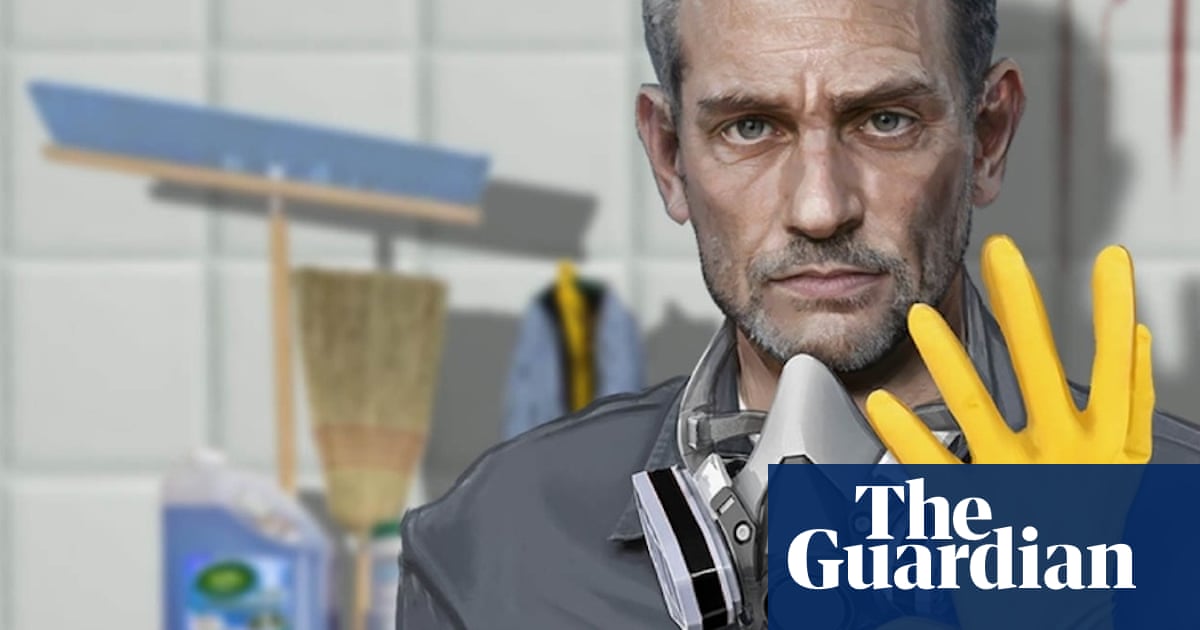Lately I’ve been playing a new job sim game, Crime Scene Cleaner, while also watching BBC’s comedy series The Cleaner, both of which focus on the aftermath of gruesome murders – sometimes you just need some cosy viewing to take the edge off the day. In the TV show,Greg Daviesplays Wicky, the acerbic employee of a government-endorsed clean-up company, while Crime Scene Cleaner’s lead character Kovalsky is a lowly janitor, mopping up blood and disposing of trash to cover up for a mob boss named Big Jim.
The crime scenes in both are laughably over the top. Or are they? I’ve never actually seen a real-life murder scene, so perhaps copious blood sprayed over walls and ceilings and the masses of broken furniture is completely normal.
Stepping into Kovalsky’s plastic overshoes, the aim is to leave each location exactly as it was prior to the … um … incident. Unlike Wicky, who has to constantly deal with annoying homeowners and neighbours, Kovalsky has no living humans for company; just the dead ones that he hauls over his shoulder before slinging them unceremoniously into the back of his pickup truck. Each scene plays out in silence, save for the occasional brief chat with Big Jim and Kovalsky’s own pithy self-talk. Both Kovalsky and Wicky are world-weary labourers, doing what is necessary to get through each blood-splattered scene. But there are differences between the two men: Kovalsky swipes cash and valuables to boost his bank balance (he’s saving up to pay his daughter’s medical bills) while Wicky just wants to get finished in time for curry night at the pub.
Crime Scene Cleaner is a weird concept for a game, the unnatural offspring of PowerWash Simulator and Hitman. But despite the macabre premise, I’ve come to appreciate the quiet, contemplative and satisfying process of cleaning up, as Kovalsky stuffs fragments of glass, pizza slices and broken crockery into his bin bag before hurling it into his truck and getting started on all the blood spatter with a microfibre mop, pushing sofas and tables back and returning ornaments to their rightful spot on the shelves afterwards. It’s immensely satisfying, despite the game’s realistic yet tiresome insistence on continually wringing out your mops and sponges.
Exploring increasingly bizarre locations is also a common theme between the two: Crime Scene Cleaner has a pizzeria, a museum and a spooky smart house; The Cleaner takes in an ice-cream parlour, theatre and stately home. I love that the game gives me a chance to become a more sedate version of The Cleaner’s Wicky without the interference of coppers, maniacal novelists or even the killer themselves (as brilliantly portrayed by Helena Bonham Carter in the show). With his daughter ensconced in a medical clinic, Kovalsky’s only (living) companion is his playful German shepherd. Its name? Dexter. Of course.
At the end of each clean-up, I find myself standing back and admiring the scene, content with a job well done. Crime Scene Cleaner and The Cleaner both tap into the very essence of black comedy, where horror becomes amusingly banall. In both, the crimes have already happened, the worst has been done and all that remains is… the remains.
